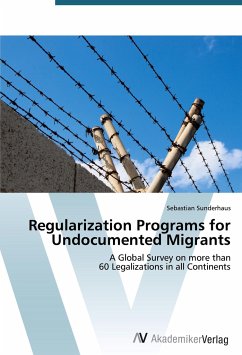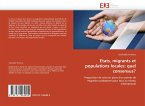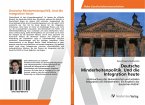While the number of illegal migrants continues to grow, host countries pon der how to solve the dilemma of promoting economic growth while respecting human rights and honoring the interests and e mo tions of their citizens at the same time. An apparent solution are re gu la rization programs. Despite the fact that many countries have im ple men ted them there is surprisingly little information on these policies. Se bastian Sunderhaus describes and analyzes the features and out comes of 60 regularization programs for undocumented migrants in 16 coun tries distributed among all continents. He gives a general survey on reasons and expectations of governments conducting these le ga li za tions, the different forms that the programs have taken, features and e ligibility requirements most frequently used as well as a summary of the implementation and problems associated with this policy tool. The book is a treasure trove of experiences and outcomes of regularizations and geared to all those who want to learn more about the pros and cons of this policy, be it politicians, civil servants, researchers, NGOs and international organizations.
Hinweis: Dieser Artikel kann nur an eine deutsche Lieferadresse ausgeliefert werden.
Hinweis: Dieser Artikel kann nur an eine deutsche Lieferadresse ausgeliefert werden.








